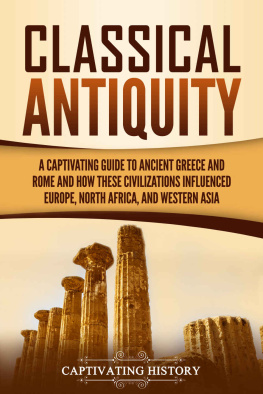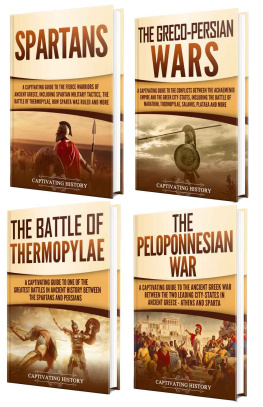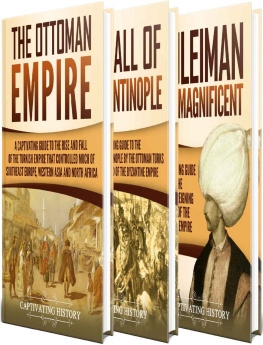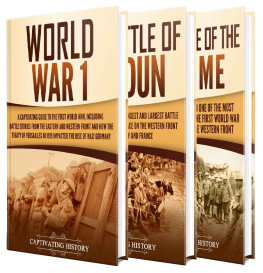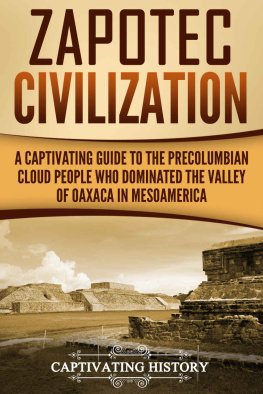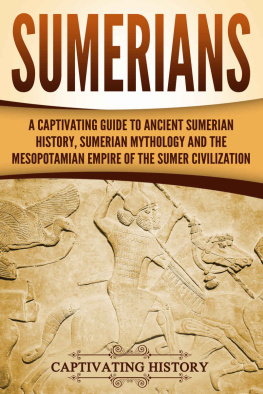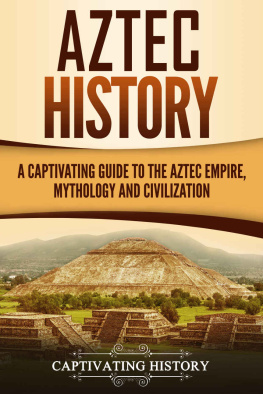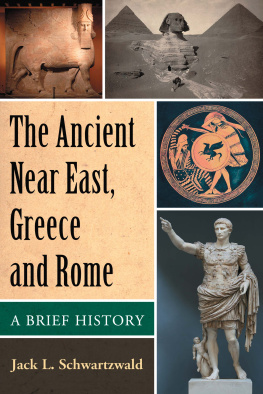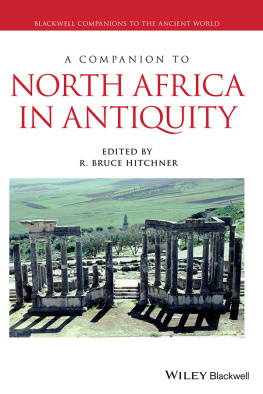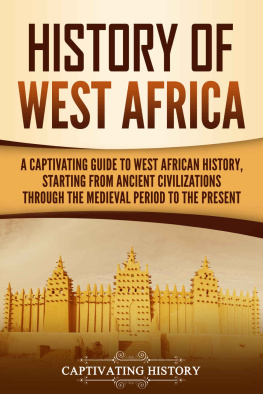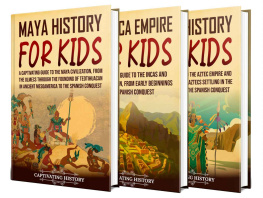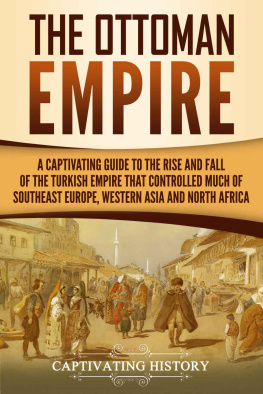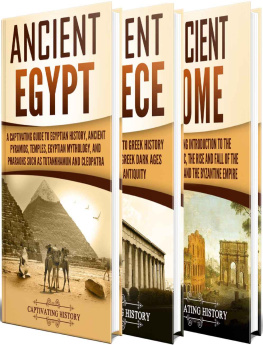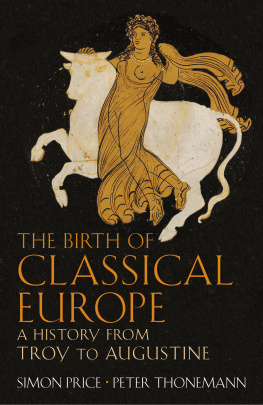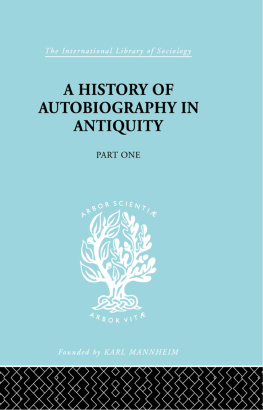History - Classical Antiquity: A Captivating Guide to Ancient Greece and Rome and How These Civilizations Influenced Europe, North Africa, and Western Asia
Here you can read online History - Classical Antiquity: A Captivating Guide to Ancient Greece and Rome and How These Civilizations Influenced Europe, North Africa, and Western Asia full text of the book (entire story) in english for free. Download pdf and epub, get meaning, cover and reviews about this ebook. year: 2019, genre: History. Description of the work, (preface) as well as reviews are available. Best literature library LitArk.com created for fans of good reading and offers a wide selection of genres:
Romance novel
Science fiction
Adventure
Detective
Science
History
Home and family
Prose
Art
Politics
Computer
Non-fiction
Religion
Business
Children
Humor
Choose a favorite category and find really read worthwhile books. Enjoy immersion in the world of imagination, feel the emotions of the characters or learn something new for yourself, make an fascinating discovery.
- Book:Classical Antiquity: A Captivating Guide to Ancient Greece and Rome and How These Civilizations Influenced Europe, North Africa, and Western Asia
- Author:
- Genre:
- Year:2019
- Rating:5 / 5
- Favourites:Add to favourites
- Your mark:
- 100
- 1
- 2
- 3
- 4
- 5
Classical Antiquity: A Captivating Guide to Ancient Greece and Rome and How These Civilizations Influenced Europe, North Africa, and Western Asia: summary, description and annotation
We offer to read an annotation, description, summary or preface (depends on what the author of the book "Classical Antiquity: A Captivating Guide to Ancient Greece and Rome and How These Civilizations Influenced Europe, North Africa, and Western Asia" wrote himself). If you haven't found the necessary information about the book — write in the comments, we will try to find it.
History: author's other books
Who wrote Classical Antiquity: A Captivating Guide to Ancient Greece and Rome and How These Civilizations Influenced Europe, North Africa, and Western Asia? Find out the surname, the name of the author of the book and a list of all author's works by series.
Classical Antiquity: A Captivating Guide to Ancient Greece and Rome and How These Civilizations Influenced Europe, North Africa, and Western Asia — read online for free the complete book (whole text) full work
Below is the text of the book, divided by pages. System saving the place of the last page read, allows you to conveniently read the book "Classical Antiquity: A Captivating Guide to Ancient Greece and Rome and How These Civilizations Influenced Europe, North Africa, and Western Asia" online for free, without having to search again every time where you left off. Put a bookmark, and you can go to the page where you finished reading at any time.
Font size:
Interval:
Bookmark:
All Rights Reserved. No part of this book may be reproduced in any form without permission in writing from the author. Reviewers may quote brief passages in reviews.
Disclaimer: No part of this publication may be reproduced or transmitted in any form or by any means, mechanical or electronic, including photocopying or recording, or by any information storage and retrieval system, or transmitted by email without permission in writing from the publisher.
While all attempts have been made to verify the information provided in this publication, neither the author nor the publisher assumes any responsibility for errors, omissions or contrary interpretations of the subject matter herein.
This book is for entertainment purposes only. The views expressed are those of the author alone, and should not be taken as expert instruction or commands. The reader is responsible for his or her own actions.
Adherence to all applicable laws and regulations, including international, federal, state and local laws governing professional licensing, business practices, advertising and all other aspects of doing business in the US, Canada, UK or any other jurisdiction is the sole responsibility of the purchaser or reader.
Neither the author nor the publisher assumes any responsibility or liability whatsoever on the behalf of the purchaser or reader of these materials. Any perceived slight of any individual or organization is purely unintentional.
Table of Contents
Free Bonus from Captivating History: History Ebook
Hi History Lovers!
My name is Matt Clayton, and Im the creator of Captivating History. First off, I want to THANK YOU for reading our books in the Captivating History series. As an avid reader of History myself, I aim to produce books that will hold you captive.
Now you have a chance to join our exclusive history list so you can get the ebook below for free as well as discounts and a potential to get more history books for free! Simply click the link below to join.
P.S. If you join now, you will also receive a free Mythology book. Remember that its 100% free to join the list.
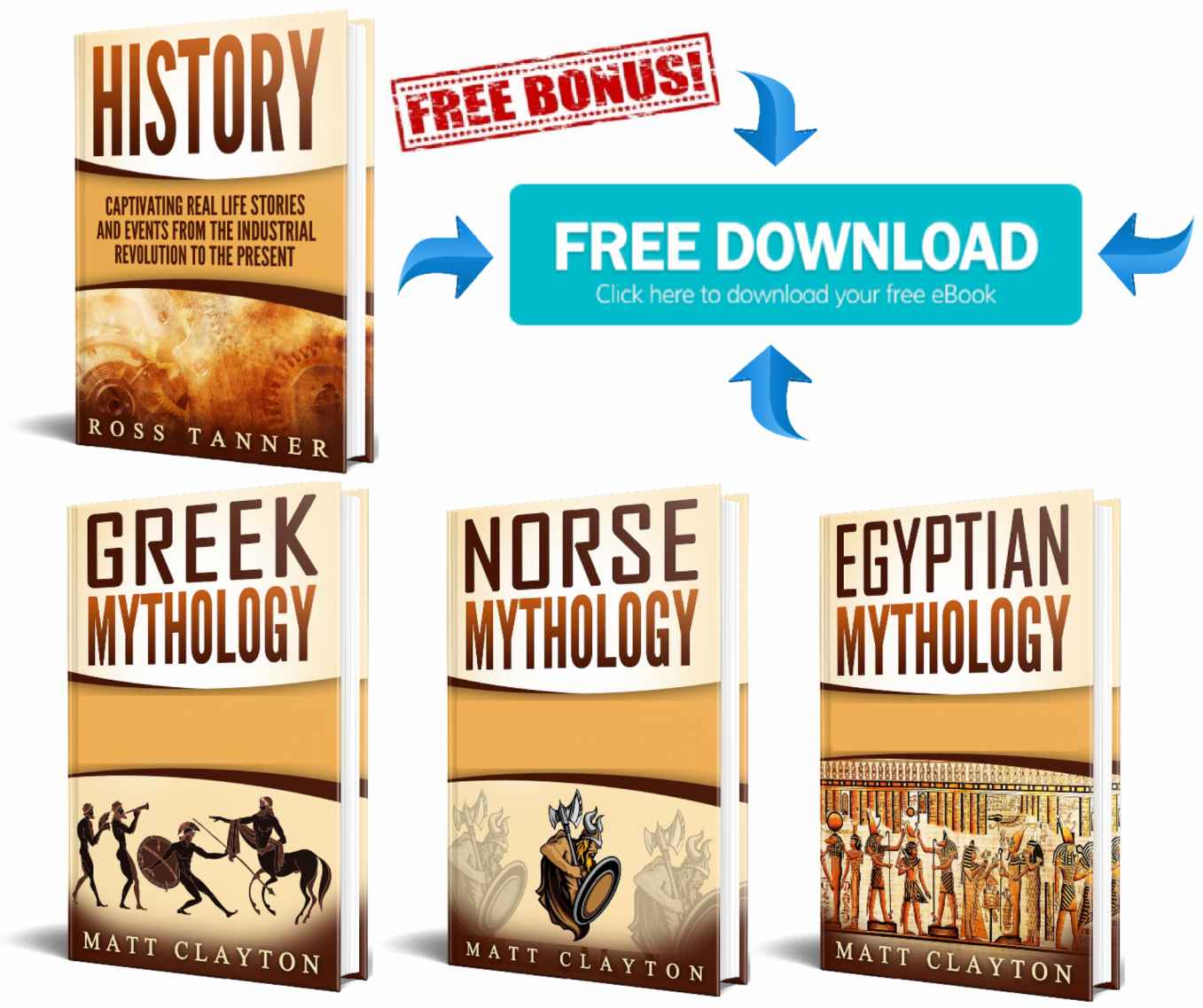
Click here to access your bonus
Also, make sure to follow us on:
Twitter: @Captivhistory
Facebook: Captivating History: @captivatinghistory
The story of Athens, Rome, Hellas, and the Roman Republic begins with a warm, blue sea upon whose waters a handful of humble canoes drift from shore to shore. Farmers populated the high hills of the pre-Hellenic realm, sowing barley and wheat, and reaping olives and grapes for making oil and wine. Families grew enough food to feed themselves, with perhaps a little left over to sell at the local community market.
Soon, Minoan and Phoenician traders learned to construct great wooden galley boats capable of delivering a group of people safely from one city or town to another by means of dozens of oars. In good winds, the mariners could drop the boats sails and rest their arms while the breeze did the work. An assortment of Greeks, Italians, Carthaginians, Egyptians, Persians, and Etruscans learned how to row and sail these waters in search of grains, vegetables, fruit, textiles, pottery, weapons, and precious metals. Curiosity and migration patterns made these people neighbors, but necessity made them trading partners and alliesand eventually rivals.
From about the 9 th to 5 th centuries BCE, the population of Greece grew unprecedently large, expanding from about 800,000 people to as many as 13 million. Bigger families meant bigger armies and larger communities that would eventually grow into the metropolises of Classical Greece.
This incredible stretch of time is called Classical Antiquity; the age in which Western civilization first realized its potential and place in the world. The era brought on big changes for all the people of the Mediterranean. Thanks to new agricultural methods, seafaring technology, and trade, great civilizations sprang up around the sea, building large urban centers full of artists, merchants, political thinkers, scientists, and philosophers. As Greco-Roman culture grew, the relationships each city and realm had with one another also developed and changed.
It began in Greece.
Pre-Athenian Greece was not yet the shining beacon of culture and intellect that it would become, but even centuries before the greatest philosophers of that glistening city-state emerged, Greece was a country of love and art. A blind poet of that era, well-educated for his day, and deeply talented, was lucky to have found himself in such a society that treasured his gifts of oratory and song. Other civilizations may have left him to struggle terribly, but not that of the ancient Ionians. Theirs was a well-populated region on the northeastern coast of the Mediterranean Sea, which was part of the western Greek settlement. There, according to the ancient Greek historian Herodotus, His poems were received with joy and his tales remembered for endless generations. These are the first stories and myths the world knows of that ancient people before their country blossomed into a legend of its own: the first full bloom of Western civilization.
During Homers time, a new alphabet was being used to replace the lost writing system of the Mycenaeans. Based on that of the Phoenicians, the Greek alphabet featured 24 letters meant to represent both consonants and vowel sounds. The alphabet followed Greek sailors to exotic destinations and took on new forms and slight variations in many port cities of the Mediterranean Sea. In Ionia, Homers use of Greek in his popular epic poems helped the language catch on in surrounding realms, much as the printing press would do in the European Middle Ages.
It was probably sometime in the late 8 th century BCE when Homer composed his most epic works: two long-form poems in ancient Greek that chronicled the ten-year Trojan Wara pillar of Greek mythologyand the long journey home of the lost hero, Odysseus.
It may be that Homers writings were largely fictional works, but they marked an important milestone in the journey of human evolution; for the first time in the Western world, literature, intellect, and art were prized and rewarded enough that an individual could pursue them singularly. Homer, though perhaps not technically an author or writer, is still considered the very first literary mind of the Western world. Though he probably never pressed stylus to waxed tablet, Homer did compose epic poems in memory of the legendary Trojan War. It was and still is an event so ancient and shrouded in mystery that it is at once considered myth and ancient history.
In his two lengthy installments, the Iliad and the Odyssey , Homer tells the story of the siege of the city of Troy by an alliance of Greek tribes. The first story was set during the last year of the war, and through a plot that centers on King Agamemnon and the warrior Achilles, the finer details of that siege are laid out. The Odyssey then follows the long voyage of one of the heroes of that long war, Odysseus, as he travels home to Ithaca. Both stories use a multitude of deities as both major and minor characters, including Aphrodite, Athena, and Apollo, who literally enter the battlefield on both sides of the clash between the Trojans and Greeks.
Font size:
Interval:
Bookmark:
Similar books «Classical Antiquity: A Captivating Guide to Ancient Greece and Rome and How These Civilizations Influenced Europe, North Africa, and Western Asia»
Look at similar books to Classical Antiquity: A Captivating Guide to Ancient Greece and Rome and How These Civilizations Influenced Europe, North Africa, and Western Asia. We have selected literature similar in name and meaning in the hope of providing readers with more options to find new, interesting, not yet read works.
Discussion, reviews of the book Classical Antiquity: A Captivating Guide to Ancient Greece and Rome and How These Civilizations Influenced Europe, North Africa, and Western Asia and just readers' own opinions. Leave your comments, write what you think about the work, its meaning or the main characters. Specify what exactly you liked and what you didn't like, and why you think so.

